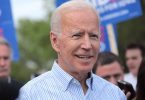As we approach the year-out mark for the 2016 presidential election, debates ramp up, candidates start campaigning more aggressively and it starts to become clear which issues will have the most impact on electoral success. One of those issues is the ever-growing amount of debt students accumulate during their college years. Every candidate, from Bernie Sanders to Donald Trump, has at least mentioned that student loan debt is a problem, and most have committed to working to make college affordable for all Americans. So, if it’s clear that making a college education more affordable and accessible is a bipartisan goal, Congress needs to catch on.
Is student debt just a rhetorical tactic candidates are using to gain the support of young voters? Some would say that the disagreement between Republicans and Democrats on student loan reform strategies is the reason that no meaningful action has been taken by Congress. While not everyone may agree that public college should be free for everyone (i.e. Bernie Sanders), there are some common sense measures the government can take to make college more accessible.
First and foremost, Congress needs to hold universities accountable to their prospective students. There needs to be a push for these universities, particularly for-profit colleges, to be more transparent about where they invest their federal dollars. This includes things like post-graduation employment rates and other performance-related statistics. On the right, transparency is at the forefront of Jeb Bush’s comments on reforming higher education, although he has not come out with a comprehensive plan yet. Marco Rubio proposed an increase in accountability by making colleges and universities provide more comprehensive information about their graduates’ success, as has Chris Christie. On the left, Hillary Clinton stressed the importance of holding universities to higher standards, especially on student outcomes.
Second, Congress should work to lower interest rates. Martin O’Malley has been particularly vocal on this, pointing out that interest rates on housing loans are substantially lower than interest rates on student loans. Even Ben Carson pressed for reform on interest rates, suggesting colleges take on the interest accumulated by their students to ensure their investment in student success.
Finally, Congress can pass legislation to make paying off student loans more affordable. It seems the bipartisan way to do this is through an income-based repayment system – an idea put forth by Marco Rubio, Hillary Clinton, Chris Christie and Martin O’Malley during their respective campaigns.
However, if there are ways to relieve student borrowers that have support on both sides of the aisle, why haven’t there been any serious pushes to act on these measures? One explanation may be the increasing polarization between the parties in Congress, and the hostility between the party members as a result. Congress has failed to pass legislation with bipartisan support to help people trying to pay off their student loans, because apparently the world would end if the parties reconciled in order to help the American people.
In reality, there is a lot of bipartisan overlap when it comes to dealing with student debt. Both Republicans and Democrats agree it’s a serious problem, and they’re all pushing to make schools more transparent through an income-based loan repayment system, matching federal grants to college performance and making the FAFSA application system simpler. The real disagreement between the right and the left is on financing for programs to actually cut these costs, and it seems the American public will have to use their votes to determine the outcome of that debate.
In the case of protecting consumers and making sure higher education is accessible to anyone who wants to pursue it, something is better than nothing. Are the empty promises candidates are making to appease the millions of people who are shouldering $1.3 trillion in student debt, or are they serious about taking action? The American people need to be able to hold elected officials accountable to their campaign promises, and making college more affordable is a great place to start. While things like free tuition and increasing funding for Pell Grants may come later, Congress and the president need to focus opening the door to higher education to all Americans, and make sure student loan debt doesn’t doom them all to failure.






Great article.